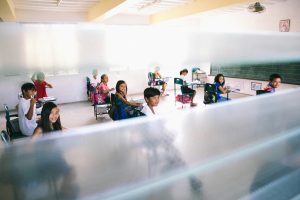Advancing remote learning through education policy
With the advent of technology and the internet, remote learning has become a viable option for many students around the world. However, it was only with the onset of the global pandemic that remote learning truly came to the forefront of education systems all over the world. Schools and universities were forced to close their physical premises and transition to remote learning, making it the new normal for students and teachers alike. As we continue to navigate through these unprecedented times, one thing has become clear – remote learning is here to stay. And the key to its success lies in education policy.
Understanding Remote Learning and Its Impact
Remote learning, also known as distance learning or online learning, involves using technology to deliver educational content to students who are not physically present in a traditional classroom setting. It has opened doors for students who may not have access to a physical school or are unable to attend due to personal, financial, or health reasons. It has also revolutionized the way education is delivered, making it more flexible and accessible to a wider audience.
With the sudden shift to remote learning, there have been concerns about its impact on education quality. However, studies have shown that it can be just as effective as traditional learning methods, if not more. In fact, remote learning has the potential to provide a more personalized learning experience for students, as it allows them to learn at their own pace and in their own space.
The Role of Education Policy in Advancing Remote Learning
Educational policies are a set of principles, guidelines, and regulations that govern the education system. They play a crucial role in shaping the quality and effectiveness of education. These policies must adapt to changing times, and as we move towards a more virtual world, it is essential to have policies that support and advance remote learning.
One of the key aspects of education policy that needs to be addressed is infrastructure. For remote learning to be successful, students and teachers need access to high-speed internet, computers, and other necessary technology. Governments and educational institutions must invest in providing these resources to ensure that no student is left behind in their education.
Training and Support for Teachers
Teachers play a vital role in the success of remote learning. With the sudden shift to online teaching, many educators were left struggling to adapt to the technology and methods. Education policies must provide training and support to teachers to equip them with the necessary skills to deliver effective online classes. This can also include professional development programs and ongoing support for continuous improvement.
Equity and Inclusion
As remote learning becomes more prevalent, it is essential to address issues of equity and inclusion. Education policies must ensure that all students, regardless of their background, have access to remote learning. This includes providing support for students from low-income households, students with disabilities, and those in rural areas with limited technological resources. Policies must also address concerns about the widening achievement gap in remote learning and work towards bridging it.
Evaluation and Assessment
Another critical aspect of education policy for remote learning is evaluation and assessment. With traditional methods of evaluation no longer possible, policies must be put in place to ensure fair and effective evaluation of student learning. This can range from using technology for online assessments to introducing alternative methods of evaluation, such as project-based assessments.
Conclusion
As remote learning becomes the new normal, education policy must keep up with the times to ensure its success. It is essential to address infrastructure, training and support for teachers, equity and inclusion, and evaluation and assessment, to advance remote learning. With the right policies in place, we can ensure that students receive quality education, regardless of their physical location, and prepare them for a future that is increasingly reliant on technology and virtual learning.










